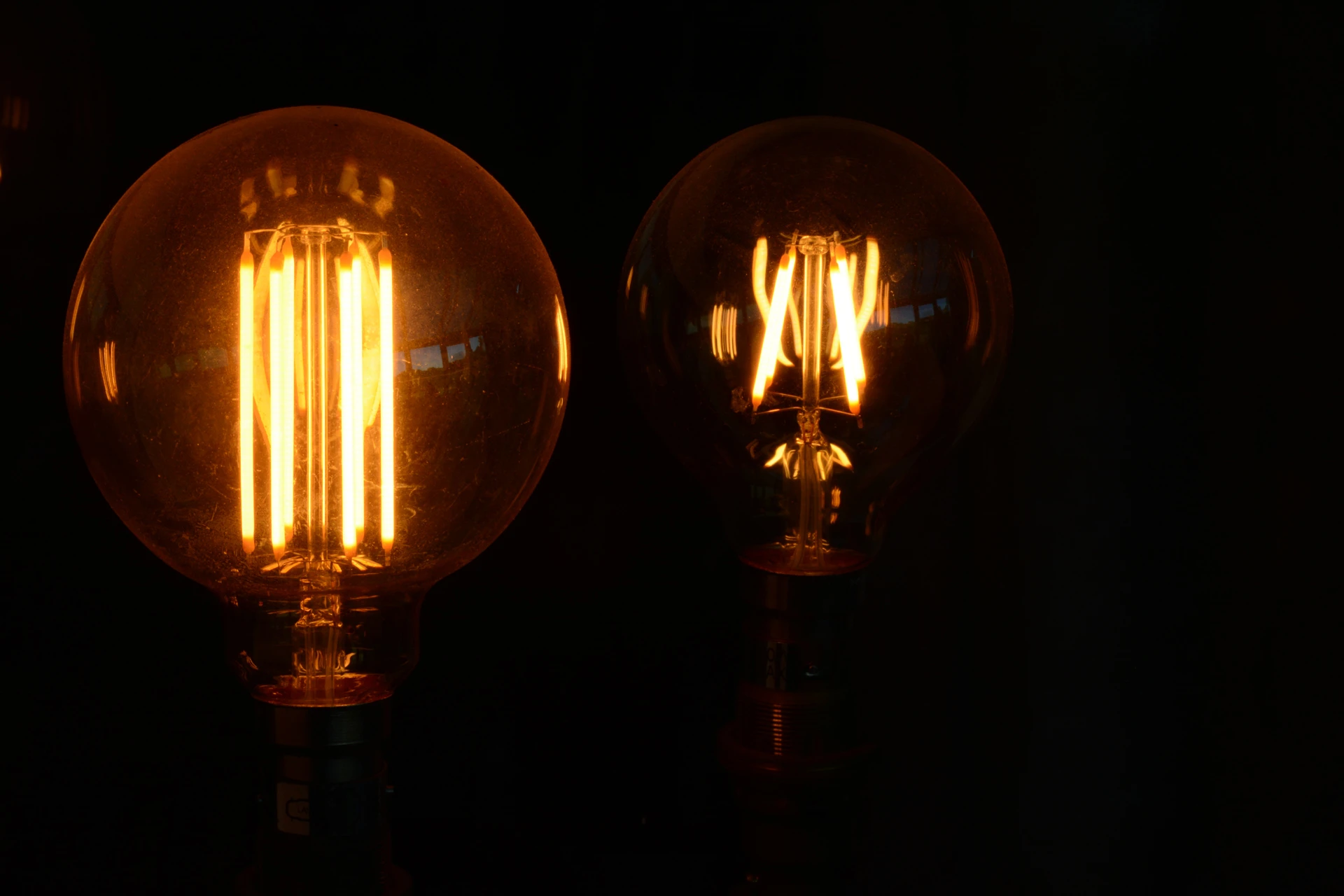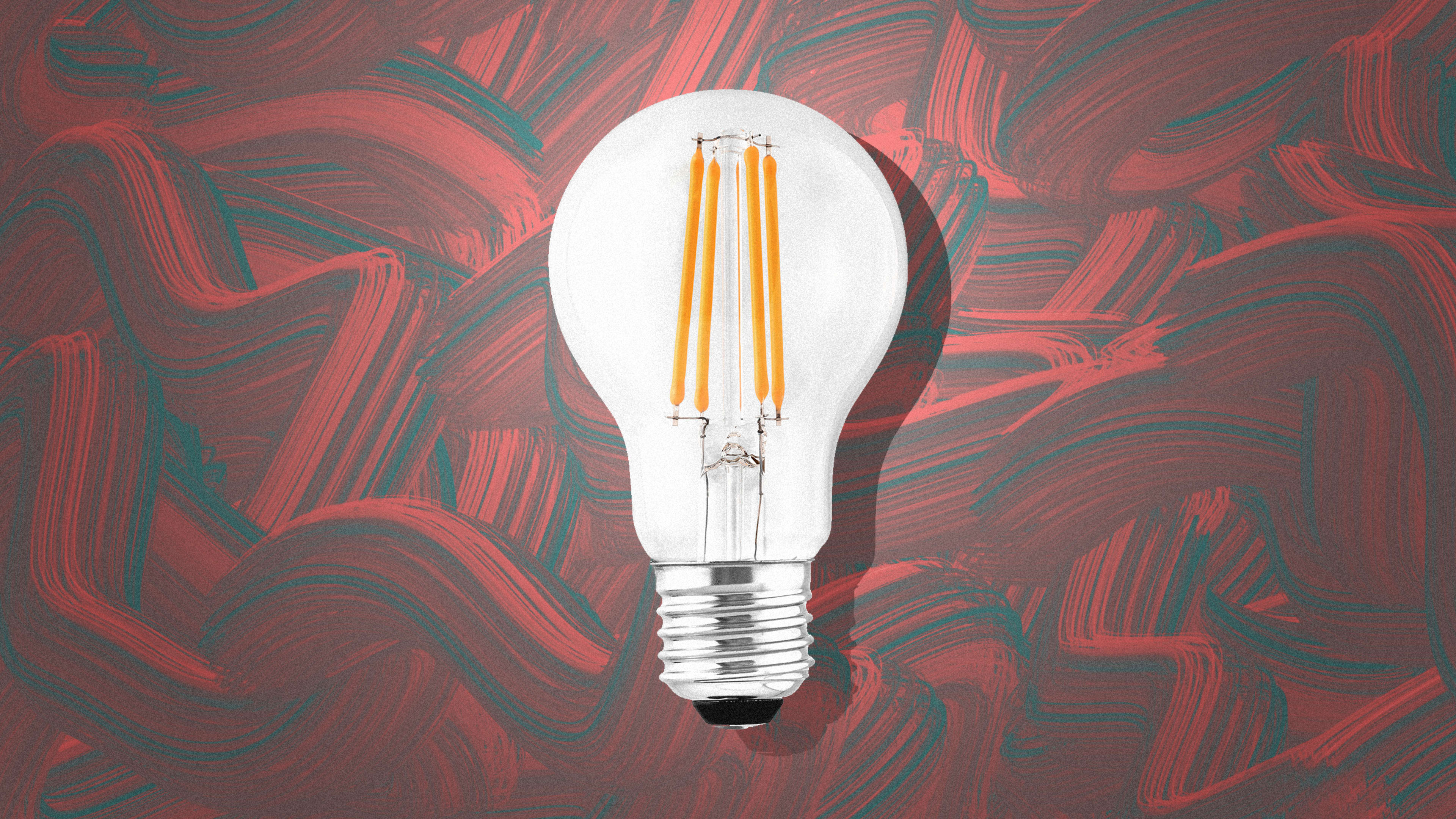You can’t walk into a trendy restaurant these days without spotting them: vintage-looking LED light bulbs, with clear glass surrounding a glowing filament, styled after the bulbs first invented by Thomas Edison in 1879 but using more efficient LED technology.
These stylish “Edison” bulbs are now the subject of a lawsuit that pits a major university against the country’s biggest retailers. The University of California, Santa Barbara, has sued a group of five major retailers—Ikea, Amazon, Walmart, Target, and Bed Bath and Beyond—for selling the lights without paying royalties to the university’s researchers, who started patenting LED technology breakthroughs at UCSB in the early 2000s. Earlier this week, the university filed a lawsuit with the U.S. International Trade Commission in Washington, D.C., and multiple civil suits in Los Angeles’s federal court. UCSB says it is seeking a “reasonable royalty” for the patents. It currently is offering businesses licenses so that companies like these can become authorized retailers, enabling businesses to source the disputed bulbs from anywhere and pay UCSB royalties directly.

According to the university, its Solid State Lighting and Energy Electronics Center first developed the technology that would enable LED bulbs to be designed with an exposed filament. Previously, LEDs were covered in opaque glass. The lawyer overseeing the case for UCSB told Bloomberg that the school had already reached out to the retailers asking to license the product, but the companies continued to sell bulbs that infringed on the university’s patent, which technically belongs to the state of California because it is a public institution.
“Since filament LED light bulbs became available in 2014, the market has grown substantially. In 2019 alone, projected sales are more than $1 billion,” reads the website UCSB created focused on the patent dispute, which claims that the university owns a host of patents related to LED lighting. “Retailers have been profiting from the unauthorized sales of this technology since it first became available, despite UC Santa Barbara’s efforts to notify infringers and establish licenses with companies in the lighting industry.”
Now, the university is aiming to stop imports into the United States to the retailers rather than targeting the manufacturers, which are all abroad and far more dispersed. If the lawsuit is successful, royalties will go to the school and to the inventors, including Nobel Prize laureate Shuji Nakamura, who is widely considered the inventor of the blue LED and was part of a team that invented a way to whiten LED light in 2014.
“We are looking into the details of this matter,” an Ikea spokesperson tells Fast Company. “It would be premature to offer further comment at this time without having all pertinent information.” Amazon and Bed Bath and Beyond declined to comment. Target declined to comment because it said the company has not been formally served. Walmart did not respond to request for comment.
According to a 2015 survey by the Association of University Technology Managers, universities collect more than $2.5 billion in licensing from their patents annually. But according to a 2013 Brookings study, only a few universities are able to turn their research into a cash cow because most licensing deals aren’t worth very much and discoveries that can change a university’s fortunes are rare. Many universities still work to increase the returns on their research, a practice which was codified in a 1980 federal law that grants universities patents for discoveries that came from federally funded research. Money from licensing deals is often split between the researchers, their department, and the university itself—a boon for public universities especially at a time when public education is struggling to get the funding it needs and tuition is skyrocketing.
In this case, UCSB has turned to litigation. And if the university wins its complaint at the trade agency—which should take between 15 and 18 months—the price of that trendy mood lighting is probably going up.
Recognize your brand’s excellence by applying to this year’s Brands That Matter Awards before the early-rate deadline, May 3.
